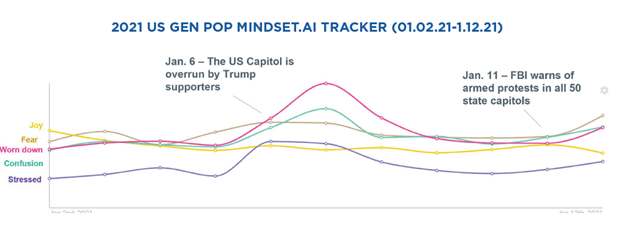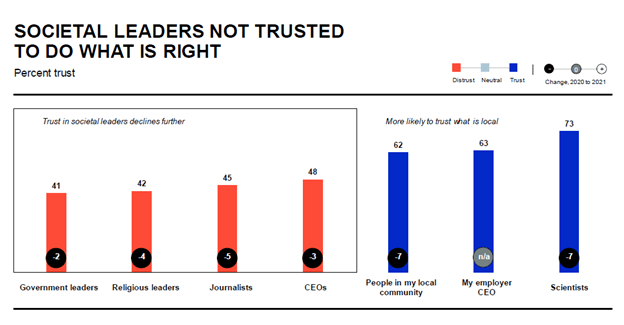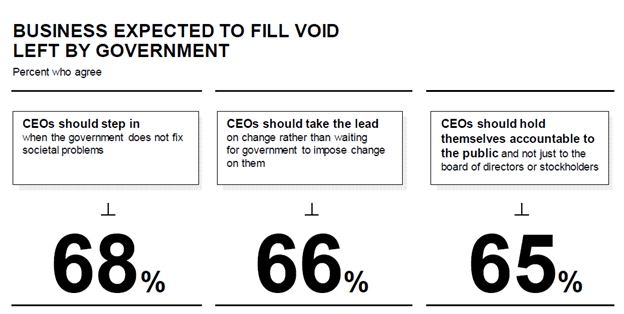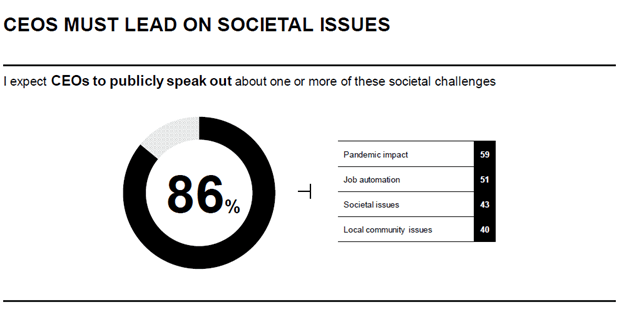What messages should you prepare for Inauguration Day?
As citizens on both sides of the political aisle report increased stress and fear ahead of the transfer of power on Jan. 20, here’s what communicators should think about sharing with their audiences.

After the Jan. 6 riot in the U.S. Capitol and reports of planned violence around the inauguration of President-elect Joseph Biden, emotions for Americans are on edge.
Companies across the country are taking steps to mitigate the stress their employees are feeling and carefully manage their own public profiles on Inauguration Day.
For example, Nvidia, the Santa Clara, California-based tech company, says it is offering its people the day off if they want it, and also extending mental-health resources, including stress counseling. In addition, a company spokesman says, it will be foregoing external business communications, including marketing, promotion and social media today.
Another company, the Swiss multinational pharma company Novartis, is extending mental health services to its employees and pausing social-media marketing for the day.
Communicators should consider how they can offer comfort and support to audiences as a stressful period hopefully comes to a close. That’s the message from Peppercomm in its new playbook for communicators ahead of Inauguration Day.
Audiences on both sides of the political spectrum are facing increased feelings of fear and stress and therefore it is imperative for organizations to act.
Peppercomm has identified that emotions around “fear” and “stress” are elevated as the day approaches and spiked during the events of Jan. 6 when a pro-Trump mob stormed the Capitol to stop the certification of the Electoral College results.

According to Edelman’s 2021 Trust Barometer, cratering trust in societal leaders has opened the door for business leaders to take the lead on a range of important issues.


When it comes to events like the inauguration, Edelman’s research strongly suggests that business leaders and executives should be ready to speak up; what Edelman calls a “mandate to lead.”

Covering your bases
If your organization plans to speak up around the inauguration, what should the message be?
Peppercomm offers some guidelines to shape your messaging for Jan. 20:
1. Make sure you are listening. Instead of assuming you know what your stakeholders want to hear, Peppercomm recommends making full use of your pulse surveys and other tools to get vital feedback.
2. Be prepared. Have you updated your crisis plans? It’s not too late to map out a few scenarios and put together a decision tree to speed up your ability to respond to any eventuality.
3. Build bridges. Peppercomm recommends having “Tough Topic Circles” in the coming weeks with facilitators leading discussions to help employees engage with one another around these issues. Here’s how the report describes the exercise:
These conversations are designed to ensure all voices and ideas are surfaced and heard and the discussion is honest and safe. The facilitator sets the ground rules at the beginning and enforces throughout.
4. Follow your core values. If you haven’t done the work to understand what your organization stands for, you know where your work must start. Make sure that any public (or private) statement on the events of the inauguration is in keeping with your organization’s values and beliefs.
5. Embrace vulnerability, resilience and wellness. Peppercomm says that it’s essential to put the focus on your people, create human connection and find ways to serve your workforce.
Crossing your T’s
Make sure your content about the inauguration is clean by consulting AP Stylebook’s Inauguration Guide. The editors at AP Stylebook remind writers that the adjective “inaugural” is lowercase, while “Inauguration Day” is capitalized.
Capitalize Inauguration Day only when referring to the collection of events that include the inauguration of a U.S. president; lowercase in other uses: Inauguration Day is Jan. 20. This is the 59th inauguration. More Inauguration Day terms and guidance: https://t.co/dsk1L0KW8o
— APStylebook (@APStylebook) January 18, 2021
Lowercase inaugural as an adjective for all ceremonies marking the president's new term and as a noun for the address given by the president at his swearing-in.
Our new Stylebook Online Topical Guide on inaugural terms is available to all users: https://t.co/HcGvzoyZFr— APStylebook (@APStylebook) January 19, 2021
Also, make sure you are using the correct version of capitol/capital.
Capitalize (not capitolize!) Capitol for the building in Washington: The meeting will be in the west wing of the Capitol.
Follow the same practice when referring to state capitols: The Virginia Capitol is in Richmond. Use capital for a city or town that is the seat of government.— APStylebook (@APStylebook) January 14, 2021
Don’t miss Ragan’s Internal Communications and Culture Best Practices Virtual Conference Feb. 24 & 25 for the latest on bringing employees together and creating excellent work culture during the ongoing pandemic.







